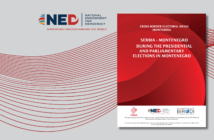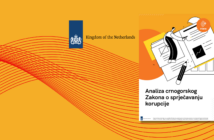An energy transition is underway in South East Europe (SEE). The traditional approach of relying on more energy supplies as a solution to support economic growth and social needs is unsustainable. Importing fossil fuels is expensive and unreliable. Throughout the region, energy is used inefficiently, well below the average standards of members of the European Union. This inefficiency adds costs to public finances, to businesses and to individuals. Energy efficiency must be implemented to support an effective energy transition for South East Europe.
Improving energy efficiency is seen as a catalyst to addressing many economic and social issues. It creates positive impacts for a number of stakeholders, at multiple levels of society. Aside from ensuring greater energy security, improving energy efficiency increases business competitiveness, including small and medium sized enterprises, lowers energy bills for consumers, and reduces local air pollution, among other benefits.
It is critical to understand that improved energy efficiency is not only goal in itself but a means to an end. Improving energy efficiency is also a long-term process which implies the involvement of long-term policy decisions. As most of the countries of the SEE region are part of the pre-accession process to join the European Union1, they will adopt many of the framework directives on energy efficiency. These directives support the valuable foundation for the long-term policy process that is needed in the energy sector, and so far, the countries in the SEE region have transposed and implemented some of them. The Energy Efficiency Directive (EED), a legislative instrument more ambitious and comprehensive than any of the other energy efficiency directives, is in the process of being adopted by the Energy Community.
The partners of the South East Europe Sustainable Energy Programme (SEESEP) are firmly concerned for the sustainable future of the region. As such, we see the importance of the region adopting the EU directives on energy efficiency and accepting to implement them in the most ambitious manner possible. Energy Efficiency is not only a piece of the larger energy strategy puzzle, but also serves as a concurrent action to achieve security of supply and economic development. We do not believe that the region should go for second best. We cannot accept the region falling farther and farther behind the European Union. Thus, we have prepared this report in advance of the adoption of the EED by the members of the Energy Community. It is our network’s contention that this far-reaching directive must be implemented as ambitiously and as fully as possible and in a timely but realistic manner. Business-as-usual is not acceptable.
This report explains the importance of the EED and argues why it must have the strongest objectives and targets as possible for SEE countries.



